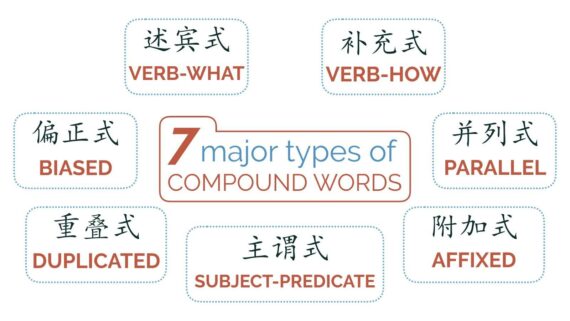9 Ways to Say Good Night In Mandarin Chinese
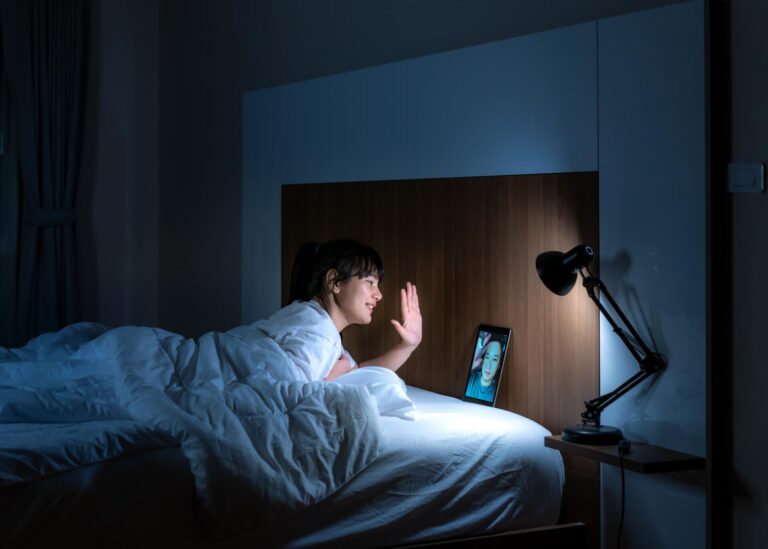
Are you tired of the same old goodnight phrases? Do you dream of learning how to say good night in Mandarin Chinese? Or are you dozing off reading these puns? If the answer to at least one of these questions is yes, you’ve come to the right place.
Some languages are famous for their cute and sometimes downright silly goodnight wishes. Whether it’s “golden dreams” in Italian, an “easy night” in Serbian, or “don’t let the bedbugs bite” in English, these expressions are an integral part of daily communication. So, how do you say “good night” in Mandarin Chinese?
1. 晚安 — Wǎn’ān
Let’s start with the basics, shall we? The most common way to say “Have a good night” in Mandarin Chinese is to use the ever-so-simple term: 晚安 wǎn’ān.
The term is a combination of 晚 wǎn, meaning late, night, or evening, and the character 安 ān, which translates to peace, quiet, calm, and safety. Together, those characters form a beautiful compound word that means “peaceful night.”
This is the easiest and most common way to wish someone a good night in Mandarin Chinese. 晚安 wǎn’ān is not overly casual or formal and can be used with just about anyone, from friends and family to colleagues and classmates.
You can spice things up by adding 宝贝 bǎo bèi (baby, darling) at the end. Doing this would result in something along the lines of “good night baby” in Mandarin Chinese.
Related Reading: 20 Powerful Ways to Improve Your Chinese Pronunciation
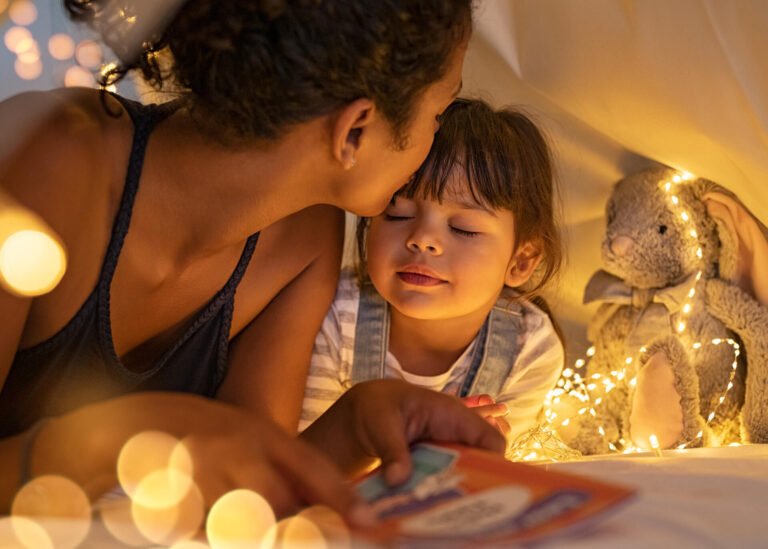
2. 好梦 — Hǎo mèng
The Chinese 好梦 hǎo mèng is the closest equivalent to the English “sweet dreams.” This expression pretty much translates to “good dream.”
If you want to switch it up a bit, feel free to use 美梦 měi mèng instead. Although the first word changes from 好 hǎo (good) to 美 měi (beautiful), the original meaning remains the same.
Both versions are widely used across China, although they are usually reserved for those you love dearly. Since the Chinese aren’t that big on expressing their emotions, you’ll rarely encounter someone saying “good night, my love” in Mandarin Chinese. Instead, you can hope for “pleasant dreams” followed by a cute emoticon.
Related Reading: 20 Ways to Improve Your Mandarin Speaking Skills FAST

3. 安 — Ān
There is a whole world where Chinese internet slang is the primary source of communication. And yes, it’s as remarkable as it sounds.
So, if you want to learn how to say good night in Mandarin slang, you should probably brush up on your cyberspeak. And you thought mastering Chinese tones would be the most challenging part, huh?
Text talk doesn’t always imply NSFW words, insults, or puns. In most cases, it relies on abbreviations of common words and standard Mandarin pronunciation to make conversation faster and easier.
And that’s exactly how the catchphrase 安 ān came to be. As you might have noticed, this is just a shortened version of 晚安 wǎn’ān. This simple abbreviation is generally used in text exchanges as a reply to the common 晚安 wǎn’ān. This is similar to the English “gn” or just “night.”
So, if you get caught up in the deep Mandarin Chinese interwebz and feel like it’s time to sign off for the evening, a simple 大家安 dàjiā ān (“good night, everyone”) will suffice.
Related Reading: The Open Secret of Immersion Learning for Languages

4. 晚安好梦 — Wǎn’ān hǎo mèng
Sometimes, you just need to go all out. Why stop at “good night” or “sweet dreams” when you can have the best of both worlds?
晚安好梦 wǎn’ān hǎo mèng is another common way to say “good night” in Mandarin Chinese. It’s not that different from English, where “good night, sweet dreams” is a standard bedtime expression.
The Mandarin Chinese 晚安 好梦 wǎn’ān hǎo mèng is one of those good evening greetings you can use with close friends and loved ones. Combining the two is also a simple yet clever way to show off your Chinese language skills. And when you’re looking to improve your Chinese language proficiency, there are plenty of interesting topics and greetings you should add to your list.
The Chinese language has both formal and informal greetings to express “good morning,” “good day,” and “good evening.”
Related Reading: First Dates: Tips for Communicating with a Chinese Date

5. 安心睡吧 — Ānxīn shuì ba
Another popular Mandarin Chinese good evening phrase is 安心睡吧 ānxīn shuì ba. We encounter the ubiquitous character 安 ān once again, although used slightly differently.
Combined with the Mandarin character 心 xīn (heart, feeling), we get an adjective that can best be translated as “to set one’s mind to rest.” 安心 ānxīn also means “relieved” or “at ease,” depending on the context.
The 吧 ba particle has multiple functions in the Chinese language. Still, in this case, it serves as a friendly suggestion. Following the cut-and-dried 睡 shuì, the phrase boils down to “sleep peacefully.”
Although 安心睡吧 ānxīn shuì ba is often used as a cute good evening message, a lot of people use it to bid farewell to those who have passed. So, unless you’re absolutely sure how and when to use it, we’d recommend opting for another evening greeting.
Related Reading: Why Consistency Matters Most in Learning Chinese
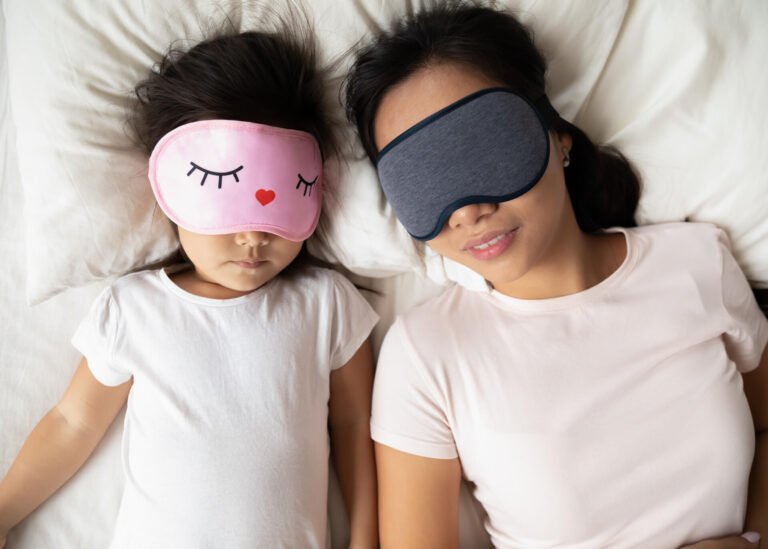
6. 好好休息 — Hǎohǎo xiūxi
We’ve had one 好 hǎo, yes. But what about the second 好 hǎo?
We’ve already talked about duplicated Chinese characters and how they can serve different functions. For example, in the case of 好好休息 hǎohǎo xiūxi, the first 好 hǎo is used to intensify the other 好 hǎo adjective.
Since both words share the meaning of “good,” the end result boils down to “thoroughly good.”
Doesn’t make much sense on its own, does it? Well, that’s where 休息 xiūxi comes in. In English, 休息 xiūxi means “rest” or “break,” so a 好好休息 hǎohǎo xiūxi would mean “very good rest.”
The Chinese are very health-conscious, which is reflected in their language. Instead of expressing love directly, they would rather opt for something more pragmatic, such as telling their children to brush their teeth, wash their face, or have a healthy snack. So, telling someone to rest is a low-key way of saying you care about their well-being.
Related Reading: The Build and Get Framework for Acquiring Mandarin Fluency

7. 好好睡一晚吧 — Hǎohǎo shuì yī wǎn ba
Another one of those duplicated 好 hǎo characters? Well, yes … and also, no. As with the previous example of 好好休息 hǎohǎo xiūxi, the first 好 hǎo was used to intensify the second adjective, which was coincidentally the same character.
In the case of 好好睡一晚吧 hǎo hǎoshuì yī wǎn ba, the situation is slightly different. This is because the intensifier 好 hǎo is used to emphasize the compound word 好睡 hǎoshuì, which means “good night.”
Arrange it all together, and you get yourself another handy good evening saying: “Have a good night’s sleep.”
Another version of the same phrase is 好好睡一觉吧 hǎo hǎoshuì yī jiào ba. Again, the sentiment remains the same, and the only difference between the two is the use of either 晚 wǎn (late, night, evening) or 觉 jiào (sleep.) Add 伙计 huǒji (man, mate, pal) at the end, and you end up with a friendly and simple “Have a good night, man.”
Related Reading: Do You Need to Learn Chinese to Visit China?

8. 早点休息 — Zǎodiǎn xiūxi
Have you ever heard the idiom, “Early to bed and early to rise makes a man healthy, wealthy, and wise?” It seems like Chinese people have taken quite a liking to it.
It’s no secret that people in China are very particular about their day-to-day routines and home rituals. One such habit is directly connected to sleeping, or more specifically — bedtime. In fact, according to traditional Chinese medicine, it is advised to hit the sack at 10:30 pm at the latest.
Keeping that in mind, it’s not surprising that 早点休息 zǎodiǎn xiūxi found its way into their daily (or should we say nightly?) vocabulary. This saying helps encourage the other person to go to bed earlier.
When used right before 休息 xiūxi (rest), 早点 zǎodiǎn serves to indicate a point in time — in this case, “early” or “earlier.” This is not to be confused with a standalone 早点 zǎodiǎn, which, when used on its own, means “light breakfast.”
Related Reading: Does Reading Help You Speak Chinese?
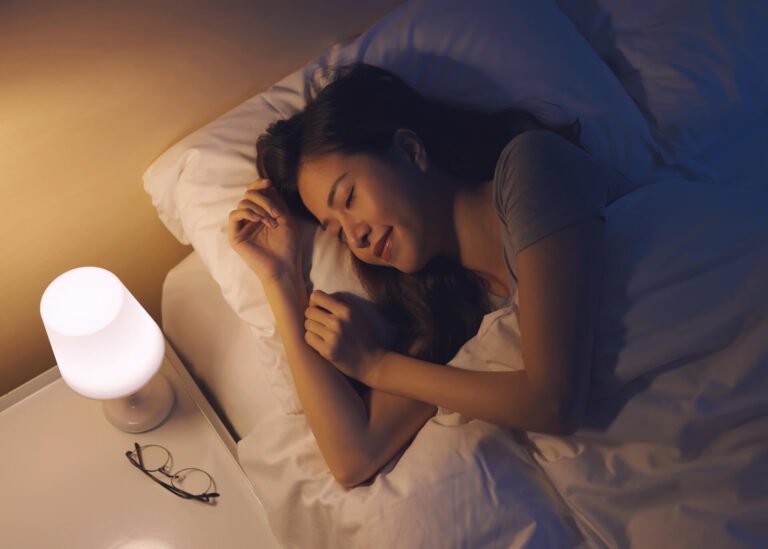
9. 睡个好觉 – Shuì gè hǎo jiào
With everything we’ve learned so far, 睡个好觉 shuì gè hǎo jiào seems like a no-brainer. This catchy phrase literally has the words 睡觉 shuìjiào separated by a measure word 个 gè and the omnipresent adjective 好 hǎo.
Like plenty of other expressions on this list, 睡个好觉 shuì gè hǎo jiào can also be translated as “Get a good night’s sleep.”
Obviously, languages are open for interpretation and shouldn’t be taken too literally. Taking that into account, it’s not unusual for people to use this phrase to say “sleep well” or “sleep tight.”
You are now nine Mandarin Chinese goodnight sayings richer than before you started reading this article — good job! Now, you’ll know exactly when (and with whom) to use 晚安 wǎn’ān, 早点休息 zǎodiǎn xiūxi, or 好梦 hǎo mèng.
Most Mandarin Chinese phrases will be suitable in just about any situation. Still, it’s important to keep in mind the context and whom you are talking to. So if you’re ready to show off your vocabulary, instead of the common 晚安 wǎn’ān, surprise your friends with 好好睡一晚吧 hǎo hǎoshuì yī wǎn ba and watch their awe-inspired reactions.
Unlock the Magic of Mandarin: Your Journey to Fluency Begins Here
As we conclude our exploration of the diverse and charming ways to say goodnight in Mandarin Chinese, it’s evident that language is more than just a tool for communication — it’s a bridge to cultural understanding and personal connection.
From the simplicity of 晚安 (Wǎn’ān) to the affectionate 好梦 (Hǎo mèng), each phrase offers a unique glimpse into the richness of the Mandarin language and Chinese culture. Whether it’s the shortened internet slang of 安 (Ān) or the caring sentiment behind 安心睡吧 (Ānxīn shuì ba), these expressions are a testament to the depth and beauty found in everyday interactions.
Now, imagine taking your Mandarin skills beyond just goodnight wishes. Picture yourself confidently navigating conversations, expressing your thoughts seamlessly, and embracing the nuances of Chinese culture.
Want to learn Mandarin faster and easier?
Complete the FREE Mandarin Fluency Scorecard for an insightful assessment of your current Chinese skills. It’s not just about knowing phrases; it’s about understanding the language’s heart and soul.
Discover your personal weaknesses and barriers to Chinese fluency. Uncover tailored strategies and immediate action steps that align with your unique learning journey. Envision yourself conversing effortlessly, your words flowing as smoothly as the Yangtze River.
It’s time to take that leap and take the scorecard. It’s absolutely FREE and takes less than 60 Seconds. Embark on a journey to fluency that’s as enriching as it is enlightening.
As you continue to expand your Mandarin vocabulary and cultural understanding, remember that each new word and phrase is a step towards bridging gaps and building connections. With your newfound knowledge and our customized guide to fluency, the world of Mandarin Chinese is just a goodnight’s wish away.
Goodnight in Chinese FAQs
1: What is the most common way to say goodnight in Mandarin Chinese”?
The most common way to say goodnight in Mandarin Chinese is 晚安 (Wǎn’ān). It’s a simple, universally understood phrase suitable for various situations.
2: Can you suggest a phrase similar to goodnight in Chinese but with a more affectionate tone?
Absolutely! You can say 好梦 (Hǎo mèng), which translates to “sweet dreams” in English. It’s a warmer, more personal way to say goodnight in Chinese.
3: How do I say Chinese for goodnight in a more informal or slang context?
In informal or slang contexts, you can use 安 (Ān) as a shorthand version of 晚安 (Wǎn’ān). It’s commonly used in text messages or casual conversations among friends.
4: What’s a unique way to say goodnight in Mandarin to impress my friends?
Try saying 晚安好梦 (Wǎn’ān hǎo mèng), which combines “goodnight” and “sweet dreams” into one phrase. It’s a delightful way to say goodnight in Mandarin and showcase your language skills.
5: Are there any tips for beginners learning how to say goodnight in Mandarin Chinese?
For beginners, start with the basic 晚安 (Wǎn’ān) and practice its pronunciation. Once comfortable, you can explore variations and more expressive phrases for saying goodnight in Mandarin Chinese.
6: What’s a respectful way to say goodnight to elders or superiors in Mandarin Chinese?
Using the simple and respectful 晚安 (Wǎn’ān) is appropriate for elders or superiors. It conveys respect and is suitable in formal contexts.
7: Is there a romantic version of goodnight in Chinese for a partner?
Yes, for a romantic twist, you can add 宝贝 (bǎo bèi) meaning “baby” or “darling” to the end of 晚安, making it “goodnight, darling” in Mandarin Chinese.
8: Can saying Chinese for goodnight be used in professional settings?
Certainly. In professional settings, 晚安 (Wǎn’ān) is perfectly appropriate as it’s formal yet friendly, making it an ideal choice for colleagues and clients.
9: How can I make saying goodnight in Mandarin more personal for close friends or family?
To personalize saying goodnight in Mandarin for close friends or family, you can use phrases like 好梦 (Hǎo mèng) for “sweet dreams” or add a personal touch by mentioning something specific to the individual or your relationship.







